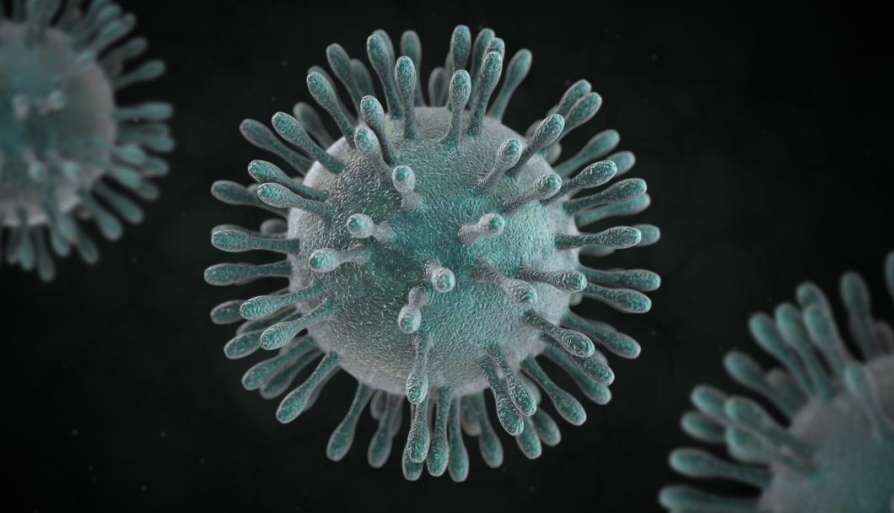Patients suffering from different ailments across the country have confessed that self-medication in the wake of the coronavirus pandemic has worsened their conditions. Many Nigerians have resorted to self-medication for different ailments and for purported protection against COVID-19 instead of accessing medical care at health facilities, Daily Trust investigations revealed.
Of recent, hospitals and government officials have attributed spike in medical complications among patients and in some instances death to the decision of those with underlying ailments going for self -medication at home instead of seeking professional intervention.

Hundreds of people suffering from hypertension, diabetes, kidney problem, heart diseases, cancer, malaria and typhoid fever among others suffered complications while taking medicines at home.
Some people spoken to said they had suffered adverse reactions and losses within their families because of their inaction. Self-medication refers to the use of drugs to treat self-diagnosed symptoms, disorders or the intermittent or continued use of a prescribed drug for chronic or recurrent disease or symptoms.
Shocking experiences
Findings by our reporters revealed that many Nigerians are resorting to self – medication because of fear of contracting COVID-19 from health workers and hospital environments, and because of the skeletal services being offered by some hospitals since the outbreak.
Funmi Ola’s husband in Lagos told her to take chloroquine along with other medications even though she was hale and hearty. Mr. Ola had an encounter with some people and suspected he could have contracted COVID-19 from there, hence the desperation to embark on self-medication and also directed his family to do same.
Recounting her experience, she said, “After using chloroquine, vitamins and another drug, my husband insisted I take herbs. These weighed me down and I suddenly became sick. I was feeling cold, experiencing headache and couldn’t sleep. I felt like vomiting and I had no appetite. When I talked to a friend who is a doctor, he recommended I use piriton.
“Although I was surprised my husband didn’t react to the chloroquine or herbs, which he also took, I guess it was because I was breastfeeding. I have learnt the hard way,” she said.
Another Lagos resident, Mrs Bukola, said she lost her neighbour because the woman forced herself into self -medication.
“She fell ill and suddenly stopped going to the market. I asked if she had gone to the hospital but she said she was using medications at home. She later called a nurse to treat her at home for some days. The nurse gave her all sorts of medications including injection and drip without knowing what was wrong with her. It was until her condition became critical that she was taken to the hospital and she died that same day.”
In Sokoto, a resident Aisha Aliyu said that before the COVID-19 index case in the state, people were visiting hospitals without apprehension but became wary with increasing cases and deaths.
“When I felt very feverish a week after the first index case was announced, the thought of going to the hospital made me scared. I just took anti-malaria; I prayed hard that my condition should not get worse to warrant my going to the hospital,” she said.
Another resident, Hauwa Sani said she was uncomfortable visiting the hospital this period because she felt the transmission of the COVID-19 virus was faster at hospitals.
The three-year-old -son of one Maryam had a fever recently and she bought pain relief medicines at a pharmacy for him.
Asked why she didn’t go to the hospital, she said, “This time of COVID-19 is not the time to go to the hospital. You could be infected by health workers and fellow patients while waiting to see the doctor or just around the hospital.
Except for emergency or very serious cases, my family will stay away from hospital for now,” she said. Jonah on his part, said he started treating himself for chest and back pain after his ordeal at a public hospital in Abuja.
“When I got to the hospital, I was told that doctors were only attending to emergency cases and that I should wait for a doctor to come. There were no doctors available at the various departments as was usually the case. “It was like the doctors decided to stop coming to work. After waiting for hours, two doctors came and just looked at me from far and walked away. I learnt they were afraid to treat anyone like that these days because of unavailability of Personal Protective Equipment (PPE) in the hospital. I left the hospital and started treating myself. It was when it got worst that I went to a private hospital for treatment,” he narrated.
Nana, a middle-aged woman said she usually suffer from an allergic reaction, which makes her to have persistent cough and breathing problems during the rainy season. She said she was afraid to go to the hospital this year because she might be tagged a COVID-19 patient because of the symptoms. She resorted to treating herself at home.
FG, health experts worried
During the daily briefing by the Presidential Task Force on COVID-19 on Tuesday, May 19, the Minister of Health, Dr. Osagie Ehanire linked several deaths from COVID-19 to self -medication particularly amongst educated and the affluent individuals with underlying medical conditions.
She said: “Self -medication could easily lead to addiction. Even if you suspect malaria or typhoid, it is better to get tested first because a fever is a symptom of many diseases not necessarily malaria or typhoid. It is wrong to just go to a chemist or pharmacy to pick up medicines.”
The Chairman, Medical and Dental Consultant Association of Nigeria (MDCAN), Dr. Victor Ohenhen, said, “the likely consequences of self -medication include wrong prescription, over and under dosage, drug side effects as well as adverse drug reactions.” Ohenhen, who is also a consultant gynaecologist with the Edo Central Hospital, Benin explained that hospitals were fully open for patients and that it behoves on those with chronic ailments to report to the hospital for their routine appointments.
The Medical Director of Dialyzer, a kidney specialist hospital, Prof Jacob Awobusuyi, said it was okay for people to use over the counter drugs when there were minor issues saying it helps with social distancing as people can stay at home as much as possible. However, he noted that it was important for people to go to the hospital when they observe worsening of symptoms.
A physician at the Abubakar Tafawa Teaching Hospital (ATBU-TH) who doesn’t want to be named, said self -medication at any time or period is not a good practice because it increases complications and is one of the causes of untimely death including the mysterious deaths being experienced in some parts of Bauchi State.
Pharmacists, patent stores making brisk business
Chima Okafor, a patent medicine dealer in Port Harcourt, Rivers State, said that he was finding it very stressful to manage the influx of people that flock his store on daily basis for drugs to treat one ailment or the other. He said that in the past two weeks, he has sold off his stock of drugs for the treatment of illnesses such as malaria, typhoid fever, ulcer, stomach ache, cough, body pains and nasal congestion.
A resident of Oyigbo in Port- Harcourt who has been managing high blood pressure for 10 years said he used to go for monthly routine checks in the hospital but has not visited the hospital since the outbreak of COVID-19 in the country.
“But since the outbreak of COVID-19, I have not visited the hospital. The first time I visited, I was subjected to all kinds of stigmatisation by the hospital staff. I waited at the reception with my card for hours but nobody attended to me and l left. I know the drugs I use all the time so I bought them at the patent store and God has been helping me since then,” he said.
Another patient who suffers from ulcer and does not want his name in print said he usually goes to hospital for checks and got drugs for treatment but because of the fear of being subjected to all kinds of checks and questions by the hospital staff, he decided to get his drugs over the counter. “Why should I go and hang around hospital to be treated as a COVID-19 suspect?” he asked.
A 50 -year-old resident of Bauchi metropolis, Umar Yusuf, who suffered from protracted sinusitis and cough for over 10 years said that he has continued to use his drugs without going to the hospital for fear of COVID-19.
“I have spent 10 years battling cough and catarrh and being treated by doctors here in Bauchi and Saudi Arabia. I will rather continue to use the old prescription than to go to the hospital because if I go there with these my symptoms, only God would save me from being isolated for COVID-19.
Another resident, Mariya Iliyasu Kangere, who is currently battling with stomach ulcer and hypertension, said she was afraid of going to the hospital for fear of being held for coronavirus because of the fluctuations of her blood pressure (BP).
“Whenever something triggers my ulcer, my BP becomes very high sometimes rising up to 40 degrees with mild fever. I have been battling hypertension for over five years, how do you think I would go hospital during this coronavirus pandemic without being detained. I will continue to buy drugs over the counter to stabilise the BP and the ulcer,” she said.
Saude Halilu, a resident of Kaduna who had a baby in April, said she had been feeling dizzy recently and had visited one of the state government’s general hospitals but did not get the attention of health care providers who told her only specific number of patients would be attended to daily.
Halilu said on the first day she visited the hospital, she had seen a general physician who referred her to a gynaecologist but said she was asked to return the next day to see the doctor.
“I went back again early in the morning and still did not see the doctor so I gave up and visited a pharmacy around Abakwa and was given blood tonic and other drugs,” she said. Another Kaduna resident named Aliyu Ibrahim, who said he recently treated himself told our correspondent that he simply bought an anti-malaria drug from a pharmacy store close to his home at Malali.
He said though he did not visit any hospital for tests, he was aware of other people’s frustrating experiences of delays in the hospitals. However, in Edo State, patients with chronic ailments said they still visit hospitals for treatment on appointed dates.
A patient suffering from diabetes who gave his name as John said he still goes regularly to the hospital for his treatment despite COVID-19 pandemic. However, he added that he took precautionary measures whenever he visited the hospital.

